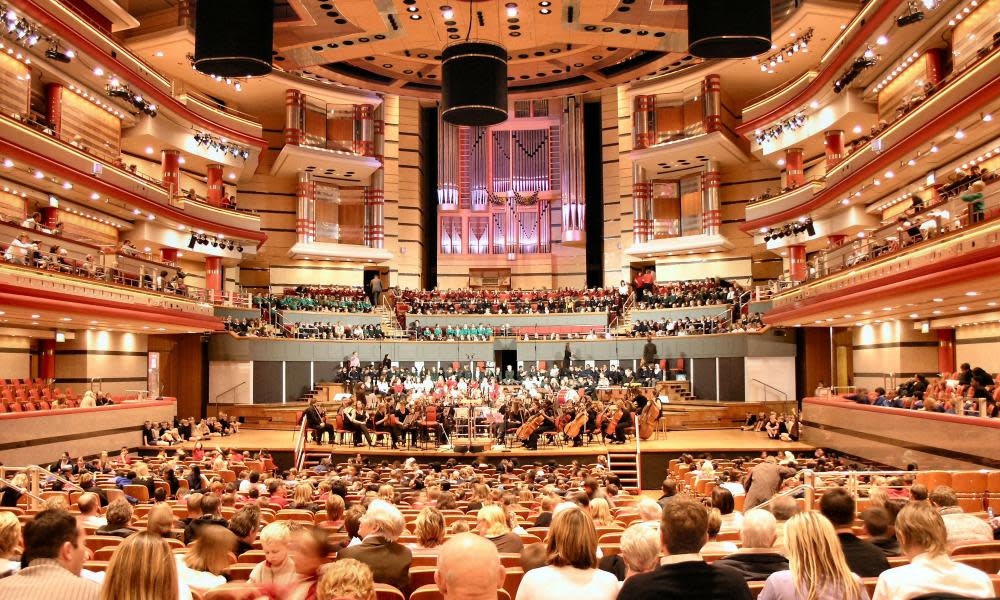Birmingham arts venues announce major job losses

Two of Birmingham’s most important venues, the Symphony Hall and Town Hall, have become the latest arts institutions to announce major staff cuts because of the Covid-19 crisis.
The charity that runs the two halls expressed sorrow at the prospect of losing around half of its 65 permanent staff but said that reducing its workforce was necessary for the venues to have a chance of survival.
Hundreds of freelancers who work on the shows and concerts staged at the two venues are also out of work.
The venues have called for clarity on when they may be able to reopen and the government’s rescue package.
Opened in 1834, the Town Hall has hosted political and public meetings and performances by Charles Dickens, the Beatles and Led Zeppelin while the Symphony Hall is considered one of the best in the world and is home to the City of Birmingham Symphony Orchestra.
In a statement released on Tuesday, the venues said: “It is with great sadness that Town Hall and Symphony Hall have entered a period of redundancy consultation.
“The future of these two iconic concert halls looks very different from the plans we began the year with. This period of closure has already resulted in huge losses and it is still unclear when it may be possible to reopen.”
More than 90% of the halls’ turnover comes from ticket sales and other activities. Some of the money it makes from presenting international stars on its stages is ploughed into emerging local talent and working with schoolchildren in some of the UK’s most deprived areas.
Nick Reed, chief executive for the Town Hall and Symphony Hall, told the Guardian that both venues were a huge source of civic pride. The opening of the Symphony Hall in 1991 is seen as a crucial moment in the modern renaissance of Birmingham. “And there’s a straight line connecting Paul Robeson [the singer, actor and activist] appearing at Town Hall in 1949 to us taking grime artists out of clubs and putting them on the same stage,” said Reed.
The venues say they desperately need guidance from the government on when they may be able to reopen – and the funding to reach that point.
Other Birmingham arts institutions backed the call for clarity. Birmingham Repertory theatre, which is facing the loss of 40% of its staff – up to 47 positions – said it could not plan until the government told it how the £1.57bn it has promised for the arts and heritage sector would be divided up and distributed.
Rachael Thomas, the executive director of Birmingham Rep, said: “We are mindful the money has to go a long way and cover the whole of the culture sector. We need clarity about the funds and clarity about reopening.”
Thomas told the Guardian she feared that the theatre would not reopen until next spring. She said the loss of culture in the city was having an impact. “If you believe, as I do, that culture is a necessary part of civic life, the loss has all sorts of impacts on individual and civic wellbeing.”
Fiona Allan, chief executive of Birmingham Hippodrome and president of UK Theatre, said: “We have no news at all about reopening dates and so everyone has to make drastic decisions about staffing. My fear is that people we’re losing are not going to work in this sector any more. They are saying goodbye to theatre. There are 290,000 people employed across theatre in the UK. We reckon 70% of those jobs are at some sort of risk.”


